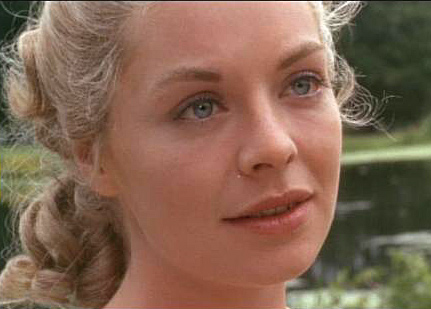Susannah York, the British actress who could plunge deep into drama and then skip playfully in comedies, died Saturday of bone marrow cancer. She was 72.
Raised in Scotland, a graduate of the Royal Academy of Dramatic Arts, she was 20 when she made her first important film, the classic “Tunes of Glory” with Alec Guinness.
She was to become an icon of 1960s British films in such titles as “Kaleidoscope,” “A Man for All Seasons,” “The Killing of Sister George,” “Oh! What a Lovely War” and “The Battle of Britain.” She memorably played a patient in John Huston’s “Freud” (1962), starring Montgomery Clift. But it was as a newlywed struggling to win a marathon dance prize in the American film “They Shoot Horses, Don’t They” (1969) that she won an Academy Award nomination.
In 1972 she won the best actress award at the Cannes Film Festival as a schizophrenic housewife in Robert Altman’s “Images.” Altman fulminated for the rest of his life that York and the film never received the respect they deserved.
York starred in films as recently as 2009, and did a great deal of London stage work and television. One success was Piers Haggard’s “A Summer Story” (1988), adapted from the John Galsworthy story. Petite and lively all her life, her hair often in a pixie cut, she was a popular guest on British chat and game shows.
Married in 1960 to the actor Michael Wells, she had two children, Sasha and the actor Orlando Woods, before their divorce in 1973. She and her children had close-by homes near Clapham Common in South London, and Orlando told the Guardian: “She loved nothing more than cooking a good Sunday roast and sitting around a fire of a winter’s evening. In some senses, she was quite a home girl. Both Sasha and I feel incredibly lucky to have her as a mother.”
In private life she was a political activist, active in the Campaign for Nuclear Disarmament. She is survived by her children and two grandchildren.












